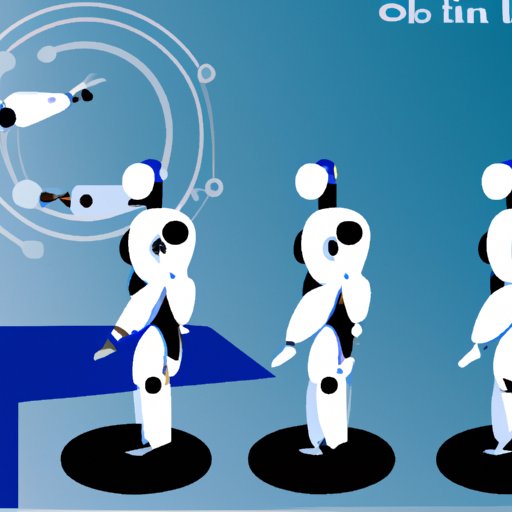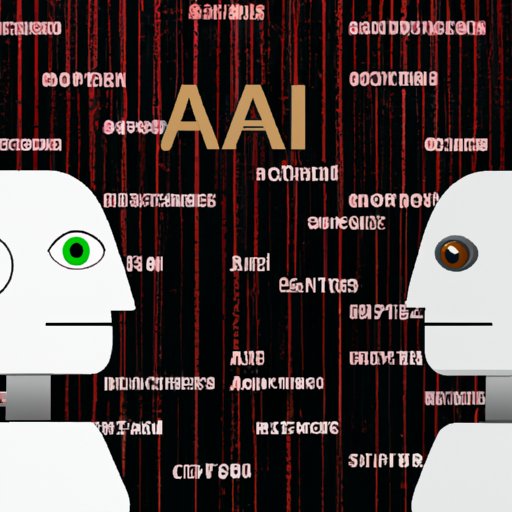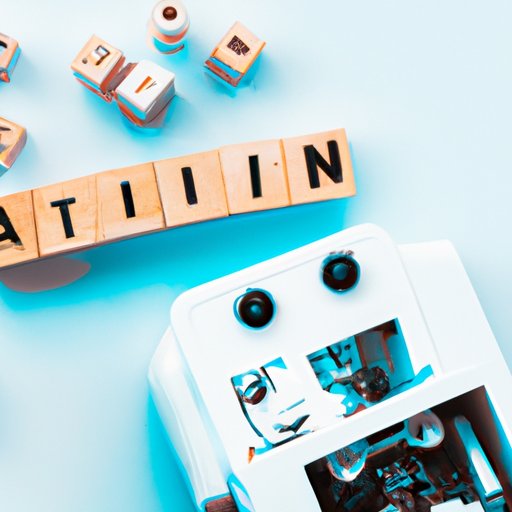Introduction
Artificial intelligence (AI) is a technology that has been rapidly developing in recent years. While it has many potential benefits, it also has some drawbacks that could have serious consequences. This article will explore the various negative effects of AI and discuss how they can be addressed.
Definition of Artificial Intelligence
AI is defined as “the capability of a machine to imitate intelligent human behavior” by the Oxford dictionary. It includes a wide range of technologies such as machine learning, natural language processing, and robotics. AI has the potential to automate processes, improve accuracy, and make decisions quickly. As such, it has become increasingly popular in many industries, from healthcare to finance.
Overview of the Negative Effects of AI
AI has revolutionized many sectors, but it has also brought about some unintended consequences. These negative effects include job losses due to automation, ethical and legal issues, privacy and security concerns, and impacts on mental health. In this article, we will look at each of these effects in greater detail.

How AI is Reducing Human Jobs
One of the major negative effects of AI is its potential to reduce human jobs. AI-driven automation is already leading to job losses in certain low-skilled sectors, such as manufacturing and customer service. According to a report by McKinsey Global Institute, up to 800 million global workers could be displaced by AI and automation by 2030.
AI is also likely to cause job losses in highly-skilled sectors, such as law and accounting. For example, AI-powered software can now do much of the work that lawyers and accountants used to do. This means that fewer people are needed to complete these tasks, which could lead to job losses in the long run.

The Ethical and Legal Issues Surrounding AI Use
AI can also pose ethical and legal issues. One of the main concerns is the potential for discrimination. AI algorithms can be biased if they are not trained properly, which could lead to unfair outcomes for certain groups of people. For example, a study from 2018 found that facial recognition algorithms were more likely to misidentify darker-skinned individuals.
Another issue is the lack of transparency and accountability. AI algorithms are often complex and difficult to understand, which makes it hard to know why they make certain decisions. This can make it difficult to hold companies accountable for any unethical or illegal activities.
AI’s Potential Impact on Privacy and Security
AI can also have an impact on privacy and security. AI systems rely on large amounts of data in order to function properly, which means that companies have access to a lot of personal information. This data can be vulnerable to hacks and leaks, which could lead to serious privacy breaches.
In addition, AI systems can be used to track people’s movements and activities. This could lead to an increased feeling of surveillance and a decrease in privacy.
AI’s Negative Impact on Mental Health
AI can also have a negative impact on mental health. Studies have found that over-reliance on AI for decision-making can lead to feelings of helplessness and decreased self-esteem. It can also increase stress and anxiety levels, as people may feel overwhelmed by the number of choices available.
In addition, AI can lead to reduced human interaction. As more tasks are automated, people may find themselves spending less time talking to other people, which can lead to feelings of isolation and loneliness.
The Risk of Unchecked Automation
Another risk associated with AI is the potential for unforeseen consequences from automated decisions. AI algorithms can make mistakes that have serious implications, such as when an algorithm incorrectly identified a medical condition. This highlights the need for increased oversight of AI systems to ensure that they are making accurate decisions.
The reliance on AI for decision-making also reduces human oversight. People are often unable to intervene in automated processes, which can lead to mistakes going unnoticed and unaddressed.

The Risks of Relying Too Much on AI
Finally, relying too much on AI can lead to decreased creativity and innovation. AI systems are designed to automate tasks and make decisions quickly, which can lead to a “one size fits all” approach to problem-solving. This can limit people’s ability to think outside the box and come up with creative solutions.
It can also lead to reduced human interaction, as people may find themselves interacting more with machines than with other people. This could have a negative effect on relationships and social skills.
Conclusion
This article has explored the various negative effects of AI, from job loss to mental health risks. Although AI has the potential to bring about many benefits, it is important to be aware of the potential harms that it can cause. To mitigate these risks, it is essential to ensure that AI algorithms are trained properly, that there is increased oversight of automated systems, and that people are not over-reliant on AI for decision-making.
(Note: Is this article not meeting your expectations? Do you have knowledge or insights to share? Unlock new opportunities and expand your reach by joining our authors team. Click Registration to join us and share your expertise with our readers.)
